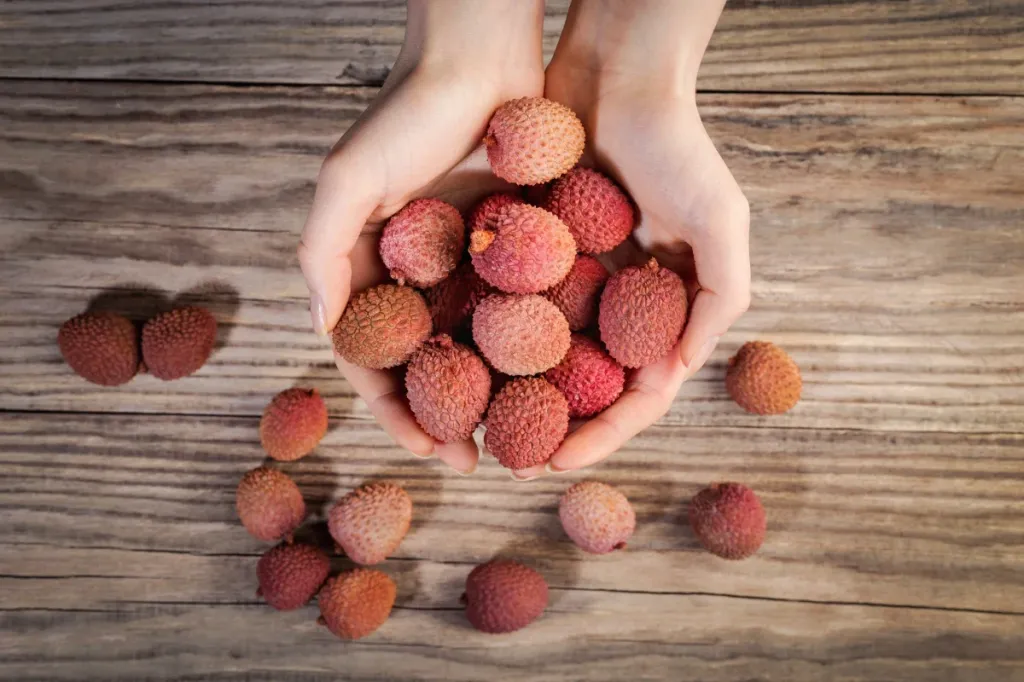
The short answer is yes. Dogs can eat lychee, but they really shouldn’t due to potential health risks. Lychees have only a small amount of flesh, and that’s the only edible part of the fruit. Plus, the fruit has an unfortunate history of being poisonous to humans and animals when unripe.
But the final word on this must always come from your veterinarian. If you want to introduce your dog to a new food item, run it by them first.
Why is lychee bad for dogs?
While lychee has nutritional benefits, it can also be potentially unhealthy for dogs and humans alike. When unripe, the fruit is quite toxic. Ripe lychee is reddish-brown, while unripe lychee is green.
Every year, a number of children in India die after consuming large quantities of unripe lychee. Scientists believe the primary cause is a combination of malnourishment and a specific amino acid found in lychee, which can severely disrupt blood glucose levels. There have been reports of fatalities linked to eating lychee on an empty stomach, leading to dangerous drops in blood sugar.
Later research deduced that lychee, a fruit from the soapberry family, contains compounds that can have a drastic effect on blood glucose levels. Unfortunately, this is just one of several concerns, and the risk of feeding this fruit to your dog still isn’t worth it.
Lychee skin is also rough and hard to digest. Aside from being a choking hazard for dogs, it can also create intestinal blockages. The same goes for the seed, which is quite large and contains saponin, a substance poisonous to humans and animals.
What should I do if my dog eats lychee?
If your dog ingests unripe lychee, this is a major cause for concern, enough to warrant a trip to an emergency veterinarian.
Giving a bit of ripe lychee flesh, free of the skin and seeds, has been known to be okay, but is still very under-documented. It’s not worth the risk. If you want to give your dog a tropical treat, the dragon fruit is a much safer and very nutritious option.
If you suspect that your dog may have gotten into some lychee kept in your home, there are some signs to look out for:
- Dark Urine
- Extreme Drooling
- Muscle Spasms
- Seizures
- Stomach Cramps
- Vomiting
If you’re seeing anything like this with your dog, seek veterinarian care immediately. Dogs can recover from lychee poisoning, but it depends on how quickly you act and how much they consumed
The post Can Dogs Eat Lychee? Is Lychee Safe For Dogs? appeared first on DogTime.
